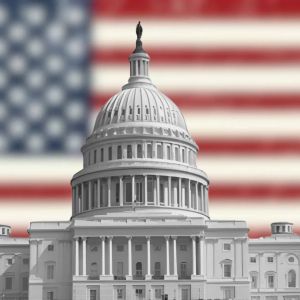Netizens wary of Trump’s new AI regulation proposals
3 min read
President Donald Trump’s recent initiatives to reshape artificial intelligence (AI) regulation in the United States have sparked widespread apprehension among online communities and civil society organizations. Central to the controversy is the “ Big Beautiful Bill ,” a legislative proposal that would impose a 10-year moratorium on state-level AI regulations, effectively centralizing control at the federal level. The bill also provides $500 million to help federal agencies upgrade old systems with new AI tools and automation. Trump and his supporters say the plan will strengthen and advance the country. Still, many people online push back, saying it gives too much power to Washington, increases surveillance , and helps big tech while ignoring privacy risks and state protections. Trump blocks state AI laws and gives full control to Washington Trump’s “ Big Beautiful Bill ” includes Section 43201, the Artificial Intelligence and Information Technology Modernization Initiative, which presents a long-term federal plan for AI in government systems. The initiative will allocate funds to the Department of Commerce to modernize outdated technology and improve how federal agencies use commercial artificial intelligence and automation tools. The bill also blocks every US state and local government from passing laws that regulate or limit artificial intelligence models, tools, or automated systems for the next decade. Exceptions exist for state laws that don’t directly deal with AI or aim to control it, even though these cases are very limited and vague. Trump’s team says national control is better for innovation and easier for businesses that build AI tools across many states, but people strongly disagree on social media platforms like X. One user mentioned that the bill goes against the conservative values of small governments with a post saying , “So much for limited government interference .” Another user compared the plan to a scene from George Orwell’s 1984, writing , “ Palantir’s Foundry is the new telescreen, watching your every move ,” in reference to the government possibly using surveillance tools made by Palantir. Many other users also raised alarms about what the bill could mean for privacy, fairness, and power with comments like, “ It seems the purpose of this is to facilitate Palintar [sic] to control everyone in a fascist surveillance state, ” using strong language to express concern that the bill will give tech companies too much control over people’s lives. People push against bill that uses AI money to benefit big tech and risks privacy The bill allocates $500 million to upgrade outdated technology and improve government efficiency through artificial intelligence and automation. Still, people say this large sum of money wil l be nefit big-tech companies like Palantir , which have strong ties with the government. Netizens suspec t th is bill will favor powerful figures like Peter Thiel, Elon Musk, and J.D. Vance, who have investments or leadership roles in these tech companies and are linked to President Trump. One user summed up this skepticism by saying, “ Exactly what Thiel, Musk, Vance, & Palantir wanted from Trump in his Big Beautiful Bill.” At the same time, another accused the bill of enriching Trump’s family, writing, “ So he and his family ca n ma x profits .” People also think that federal agencies like the Department of Homeland Security (DHS) and FEMA will use AI tools for surveillance to infringe on people’s privacy and increase the government’s overreach. The “Big Beautiful Bill” will also prevent local governments from enforcing laws they have already created to protect residents from the dangers of AI, meaning states will not respond effectively to the challenges AI causes within their communities. Businesses trading with countries in the European Union will also struggle because the E U has im plemented its own AI Act. This means it will be difficult for American businesses to follow both US and European rules simultaneously because Trump’s bill centralizes AI regulation at the federal level and stops states from making their own rules. The result s en d up causing conflicts and creating risks for trade and data sharing that are important for many technology companies operating across borders. Cryptopolitan Academy: Want to grow your money in 2025? Learn how to do it with DeFi in our upcoming webclass. Save Your Spot

Source: Cryptopolitan



